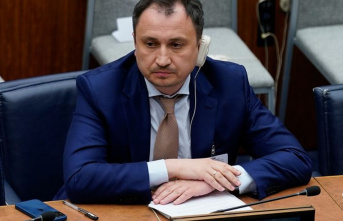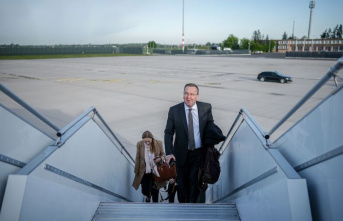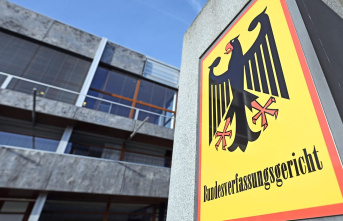The fifth and final synodal assembly on the reform of the Catholic Church in Germany began in a tense atmosphere on Thursday. The chairman of the German Bishops' Conference, Georg Bätzing, called for courage to make changes. "This church of mine deserves that we don't just leave it as it is," said the Limburg bishop. The synodal assembly is the central body of the synodal path reform process, which began at the end of 2019 and is now to be brought to a conclusion for the time being.
In the evening, the assembly adopted a so-called action text for an opening of celibacy with a large majority. 179 delegates voted in favour, with ten votes against and 16 abstentions. The necessary two-thirds majority among the bishops present was also achieved. However, the text is also kept relatively vague: the vote does not mean a quick end to celibacy - the mandatory celibacy of Catholic priests. Rather, only the Pope should be asked to examine whether it is possible to abolish the obligation to be celibate. At the same time, the appreciation of celibacy as a way of life is emphasized.
The President of the Central Committee of German Catholics (ZdK), Irme Stetter-Karp, said: "We want to make the church fit for the future." In an interview with the German Press Agency, she appealed to the bishops not to turn a blind eye to a renewal of the church: "Of course, I expect that the bishops as a whole will assume their responsibility for the process and do justice to their leadership role in the Catholic Church's state of crisis."
230 people from all of Catholic life in Germany are represented in the Synodal Assembly. They have until Saturday to vote on the reform proposals. It is about, for example, the priestly blessing for homosexual couples and the believers' right to have a say in the election of a bishop. However, no resolution can be passed unless at least two-thirds of the 67 German bishops agree. This majority is considered endangered since Pope Francis and the Roman Curia - the central administration in the Vatican - took a clear stand against the planned reforms.
Bätzing like Asterix against Rome?
This criticism did not fail to have an effect, Stetter-Karp admitted: "The last few weeks have been clearly shaped by it and I think the mood at the beginning of the meeting will also be characterized by the fact that we have a relatively high level of tension because the Roman interventions." As ZdK President, Stetter-Karp represents the practicing Catholics in the communities. Like Bätzing, she had sometimes vehemently rejected the criticism from Rome.
In this context, the canon lawyer Thomas Schüller even compared Bätzing to the cartoon character Asterix: "Bätzing fights for majorities like little David or Asterix," the Münster professor told the dpa. In Frankfurt, the bishops who are willing to reform must now show what the synodal path is really worth to them, said Schüller: "Are they on the side of the believers or are they shying away from Rome?"
Bätzing said at the beginning of the synodal assembly that some of the concerned bishops had submitted written amendments to a number of reform proposals. The task now is to find a workable consensus. The Central Committee of German Catholics made it clear that it was not prepared to go below a certain minimum level of reforms.
Various groups demonstrate in Frankfurt
Both supporters and opponents of reforms demonstrated on Thursday in front of the venue of the synodal assembly in the Frankfurt exhibition center. Representatives of Catholic women's associations also demanded that women be ordained priests, young Catholics demonstrated with rainbow banners for an open and diverse church: "Jesus also had two fathers," read one banner - an allusion to the fact that, according to Catholic tradition, Jesus was born through divine intervention from was born to the Virgin Mary, the wife of Joseph, and therefore had two fathers, so to speak: God and Joseph.
The conservative group "Maria 1.0", on the other hand, tried to drown out the "church is colorful" calls with their own messages. "Don't be Luther," said the conservative women, who also showed no understanding for bishops willing to reform: "How did it come to this?" However, representative surveys show that the supporters of reforms in the Catholic Church in Germany are clearly in the majority.
The synodal path was triggered by the numerous cases of abuse in the Catholic Church. Scholars have repeatedly emphasized that there are structures in the church that encourage abuse. These include the extremely hierarchical structure, the concentration of power in the hands of a few men, the exaggeration of the priests as mediators between God and man, the demonization of homosexuality and the structural discrimination against women. The synodal path wants to change these structures and thereby also prevent new abuse.











